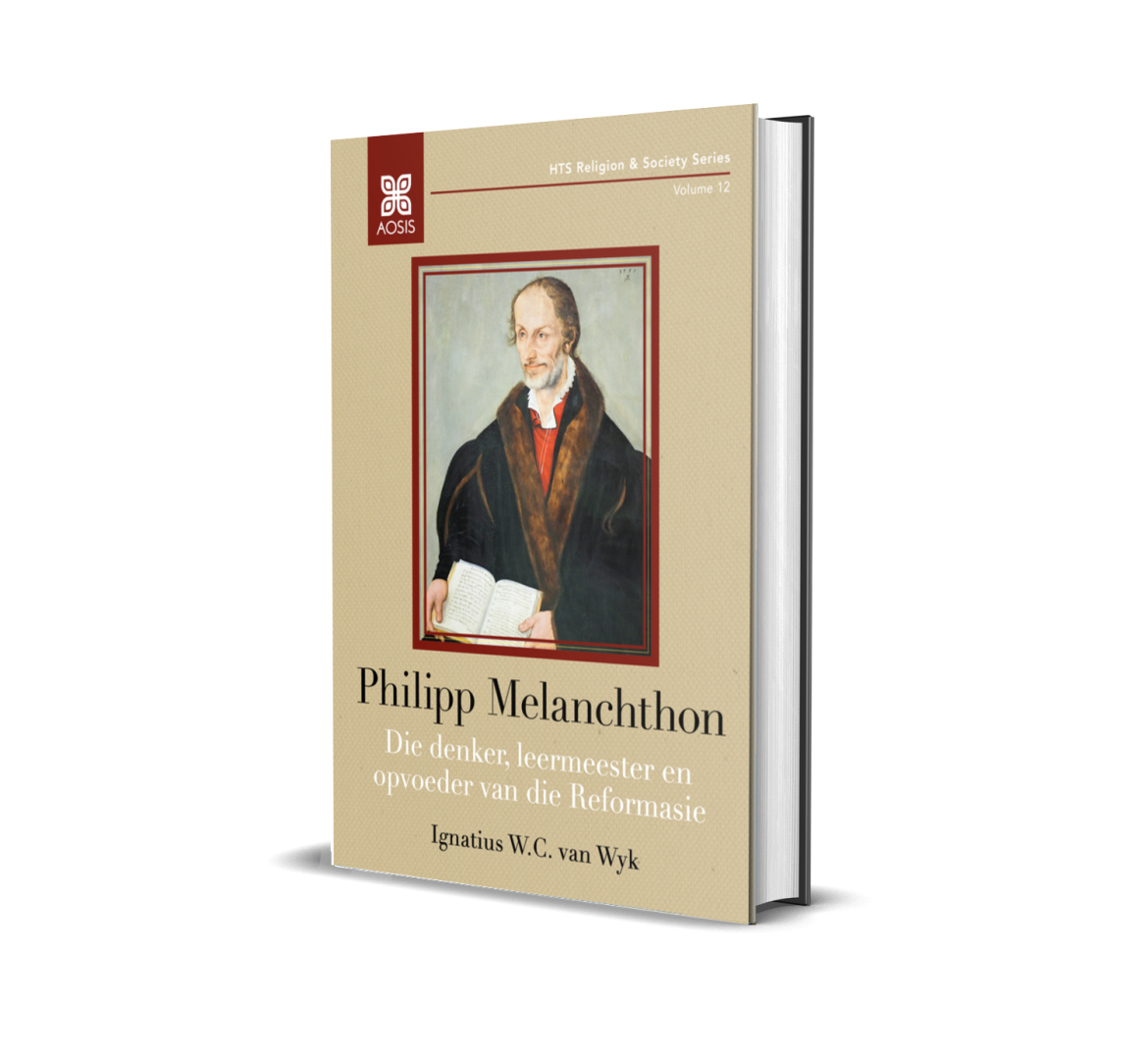Philipp Melanchthon: Die denker, leermeester en opvoeder van die Reformasie is published by AOSIS Scholarly Books. Philipp Melanchthon (1497–1560) was, with Martin Luther, the most influential reformer of the church during the 16th century. He was also a reformer of university education, especially theological studies, as well as the school system in Germany.
He was responsible for a theological curriculum that included Greek, Hebrew, and philosophy. He, as a professor of Greek at the University of Wittenberg since 1518, was the author of the first generally accepted Protestant confession, known as the Confessio Augustana (1530). He also wrote the first Protestant commentaries on Paul’s letter to the Romans (1519), as well as the first Protestant handbook in systematic theology (1521). He was the main negotiator of the Protestant movement during the diets and religious discussions with the Roman Catholic Church. He is known as the ‘teacher of Germany and Europe’ and is respected as the father of the ecumenical movement. Yet, Melanchthon is not known to South Africans and especially Afrikaans-speaking people who, traditionally, have close links with the reformational tradition. There is not yet one single publication on Melanchthon in Afrikaans or by a South African scholar, making this book, therefore, the first by an Afrikaans-speaking scholar on Melanchthon.
Copyright (c) 2022 Ignatius (Natie) W.C. van Wyk (Author)
This book gives the first introduction to the life and work of Philipp Melanchthon in a South African language. While Melanchthon is well-known as the friend and younger colleague of the Wittenberg Reformer Martin Luther, he deserves to be understood in his own right as a brilliant humanist, biblical scholar, pedagogue, and philosopher. The book begins with a survey of the life of Melanchthon. From a young age, Philipp was predestined to a career as a scholar and teacher. Next to Luther’s fiery temperament, Melanchthon provided the necessary calmness and irenicism that helped the Reformation movement gain broader acceptance within the German Empire and beyond. The main substance of the book discusses Melanchthon’s understanding of the Christian doctrine, under such headings as Scripture, anthropology, eschatology, soteriology, and the Christian life. Typical of his approach is that he includes discussions and insights from various schools of ancient philosophy. Key to understanding Melanchthon’s theology is seeing its practical and spiritual focus. Throughout his life, Melanchthon discovered the power of prayer, and practiced it not only in his private life but also in his public writings. At several places, the author comments on the lasting relevance of Melanchthon for church, academia and society today. Throughout the book, the author shows an admirable command of the original sources, and quotes directly from a broad array of Melanchthon’s writings. The book provides a well-informed and rich introduction to the life and work of this teacher of the church.
Prof. Dr Dolf te Velde, Department of Systematic Theology, Theologische Universiteit Kampen, Kampen, the Netherlands

